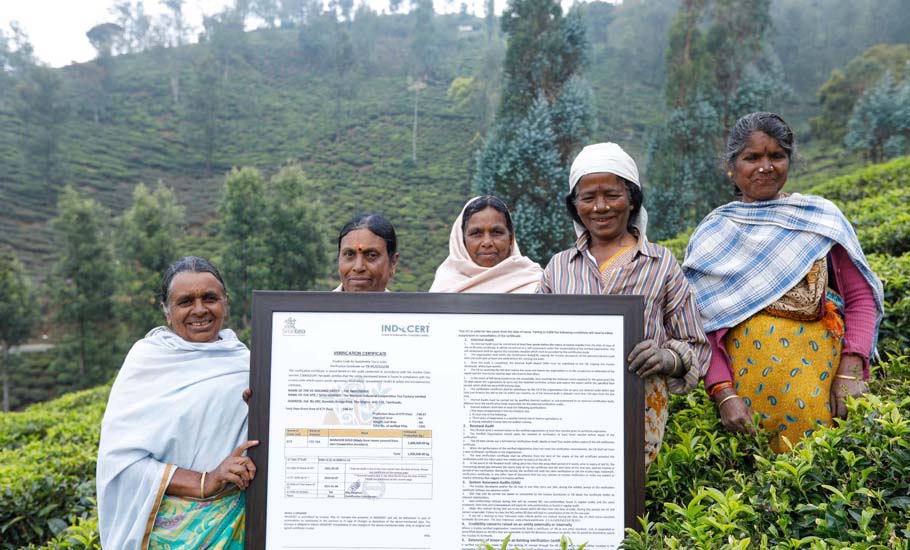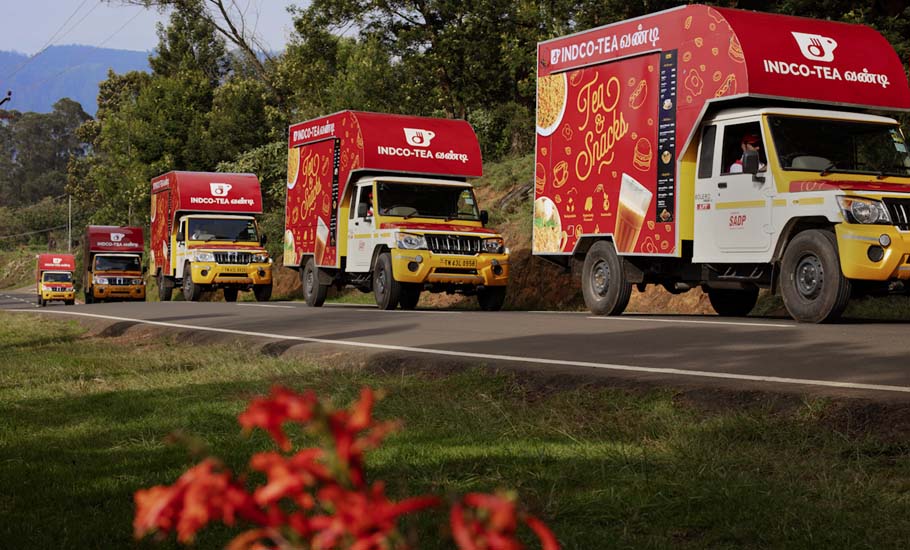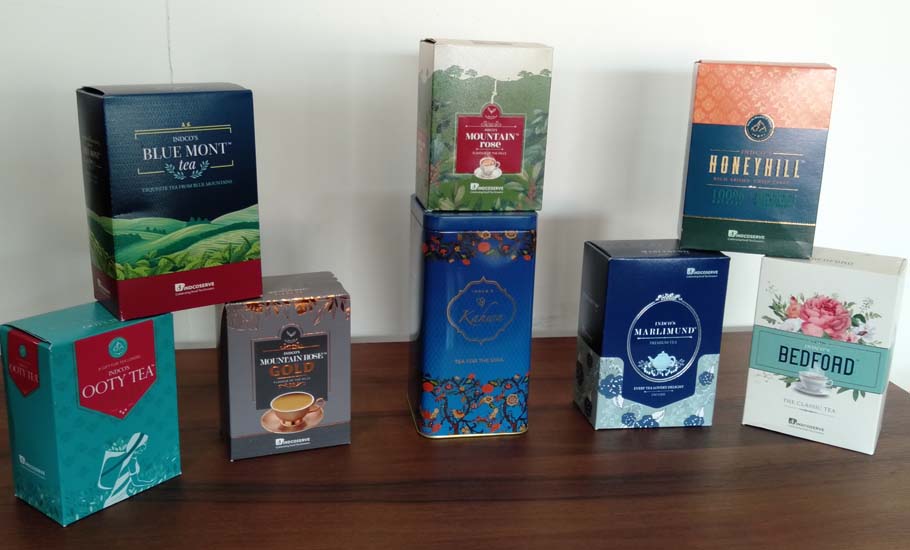
How Nilgiris tea redefined taste buds with fresh blends, brands

After tourism, tea is one of the major attractions in the ‘Queen of Hills’, The Nilgiris district in Tamil Nadu. First introduced in 1835, tea has been grown commercially from the 1850s in the hills.
About 135 million kg of tea is manufactured annually from here by more than 65,000 small farmers in about 66,000 hectares.
Of the 65,000 farmers in the region, half are supported by INDCOSERVE, India’s largest tea cooperative federation that manufactures nearly 13 million kg of black tea every year.
Under INDCOSERVE, there are 16 tea factories which source green tea leaves from these farmers, process and distribute them.
Set up in 1965 by the Tamil Nadu government, INDCOSERVE and its factories for a long time were like typical government institutions, poorly maintained. Its poor branding and packaging resulted in people considering the tea to be of low quality. There was no proper marketing effort to take it forward.
It all changed in October 2019, when IAS officer Supriya Sahu, principal secretary, Department of Environment and Forests, took charge as managing director of INDCOSERVE.
Also read: Repackaged promises: Assam govt selling bitter brew to tea tribe
As a first step towards transformation, Sahu wrote letters to 30,000 farmers seeking inputs to increase their productivity. She soon infused professionalism into the organisation, appointed an advisor and set up various teams to supervise quality, fix price, auctions, marketing and branding.
Some factories were renovated. Factories producing good quality tea were rewarded. Some even won international certifications, gradually making the Nilgiris tea a much sought-after tea in national and international markets.
Within a year, the cooperative managed to increase its annual turnover from ₹139 crore in 2019-2020 to ₹236 crore in 2020-2021.
More range
Supriya Sahu tells The Federal that it all started with increasing the range of products that INDCOSERVE could serve. From three products, it started offering 11 products in good packages with attractive brand names.
“For the first time INDCOSERVE has launched leaf grade blends, keeping in view its great potential in north India and international markets. Box packaging has also been introduced to have the competitive edge in the tea business,” she said.
“Generally, the government sector is not known to undertake professional and attractive packaging of products. Even though the quality may be good, government-owned organisations including cooperatives are yet to pay greater attention to product designing and packaging. In the case of INDCOSERVE, we have broken this barrier,” she said.

While INDCOSERVE has a simple strategy of developing exclusive blends from the staple of leaf and dust grades of CTC (Crush, Tear, and Curl) type of manufacture, elite and exquisite brands like Blue Mont and Kahwa were customised with specialist teas and green teas, and are manufactured through the Orthodox methodology.
The difference between CTC method and orthodox method is that the former involves trained professionals extracting the best flavours from the tea leaves and preserving the singular virtue of the tea, while the latter produces tea at a faster rate and has standard quality.
Cultural branding
The branding of the products was done keeping in mind certain well-defined criteria, Sahu reveals.
“Firstly, the names were carefully chosen to relate with local geography and inherit some of the well-known areas of the district to strike a chord locally and internationally as the Nilgiris is rich with its cultural heritage and colonial legacy,” she said.
The uniqueness of each product was a result of combination of various factors viz, the area in which the tea was grown, the factory from which the tea was manufactured, the type and process of manufacture and the intelligent blending formula developed after exhaustive tasting trials and consultations with various stakeholders, Sahu said.
INDCOSERVE then reached out to ration shop consumers through various means, print advertisements, radio jingles and other measures.
Also read: Why Hyderabad’s love for Irani chai is turning cold
“We also obtained direct feedback from consumers by sending our officers to various ration shops across Tamil Nadu and also by circulating feedback forms through the district registrars operating the public distribution system (PDS) ration shops. Before tweaking, the blends were carefully analysed and incorporated as per merits and genuine observations recorded by customers,” Sahu said.
The development of ‘Ooty Tea’ variants like Elaichi and Masala were actually the result of demand expressed by consumers to have choices and varieties, she added.
For the first time, the government cooperative has introduced tea-and-snacks-on-wheels concept. The mobile trucks by the INDCOSERVE called ‘Tea Vandis’ are aimed to promote brands, augment sales of packaged tea, marketing and publicity, penetrate new markets and, provide livelihood to local tribal communities.
“As of now, we have 5 trucks, and 20 more trucks are to be added to the fleet. Similarly, we have also launched ‘Tea Houses’, an eye-grabbing tea shop at important tourist spots and planning to set up at Chennai Metro Rail Stations,” said S Sreeram, advisor, INDCOSERVE.
International certifications
To achieve gold standards in quality tea manufacturing in a sustainable fashion, INDCOSERVE has obtained certifications such as ‘Fairtrade’ and ‘Trustea’ certifications.
Sahu explains that ‘Fairtrade’ certifications means that buyers need to pay a FT (Fairtrade) Minimum Price and an FT Premium to the producers.
“The FT premium provides farmers and workers with additional money to invest in improving the quality of their business and communities. FT certification places a high level of responsibility on the organisation to ensure environmentally sound agricultural practices, social rights and security to workers and prohibition of forced labour and child labour. It basically democratises trade,” she said.
‘Trustea’ certifications is the Indian Sustainability Code that ensures quality assurance in the highly competitive tea market by defining parameters and regulations to be complied with right from growing the crop to packaging the tea.
Also read: How tea brews trouble for parties in the Nilgiris
“This certification also features an inherent traceability index empowering the small tea grower to have all requisite and relevant information at their fingertips while also ensuring complete accountability and performance tracking. Welfare of our small tea growers as well as of the factory workers is at the heart of our action. These certifications would certainly enhance the profitability of the entire organisation to the benefit of every small tea grower of the co-operative federation,” says Sahu.
Carbon neutral tea
In what can be called as a step towards mitigating climate change, one of the factories of INDCOSERVE has been entrusted with the responsibility of producing tea by decreasing its carbon footprint. And its tea is to be named as ‘Carbon Neutral Tea’.
“Taking the thought of lessening the carbon footprint, we wanted to create a model tea factory that would completely refrain from using firewood, any fossil fuel as well as regulated electric power supply from the government. To achieve this, solar power generation happens to be the most effective alternative energy induction and towards this, we have partnered with the Tamil Nadu Energy Development Agency (TEDA) and are in the process of converting the factory into a fully solar power operated tea manufacturing facility. When the factory becomes functional, it will be a trailblazer in the country,” Sahu asserted.











